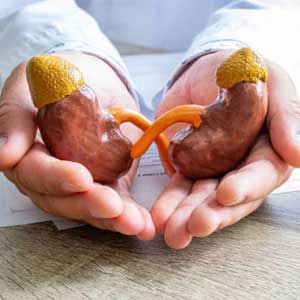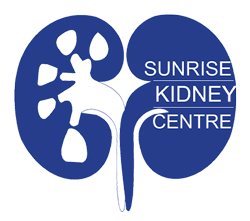Kidney Transplantation in Vijayawada
Kidney transplantation is a surgical procedure that involves placing a healthy kidney from a donor into a patient whose kidneys are no longer functioning properly, typically due to chronic kidney disease or acute renal failure. This procedure is considered a viable treatment option for patients who require renal replacement therapy and have not responded adequately to dialysis. Kidneys can come from living donors, often family members or friends, or deceased donors, where consent has been given. The surgery by Best kidney Doctor in Vijayawada aims to restore the patient's kidney function, improve quality of life, and decrease the risks associated with long-term dialysis. Prior to transplantation, patients undergo thorough evaluations to ensure suitability, including assessments of overall health and compatibility with the donor kidney. Post-transplant, patients are required to take immunosuppressive medications to prevent organ rejection and undergo regular follow-ups to monitor kidney function. While kidney transplantation can significantly enhance life expectancy and quality, it also carries risks, such as complications from surgery and long-term effects of immunosuppressive therapy.

Types of Kidney Transplantation :
Kidney transplantation primarily involves two types: living donor transplantation and deceased donor transplantation. In living donor transplantation, a healthy individual donates one of their kidneys to a recipient with end-stage renal disease. This type at kidney transplantation hospitals in Vijayawada offers several advantages, including shorter waiting times and improved transplant outcomes, as the living kidney often functions better than one from a deceased donor. Living donors can be related, such as family members, or unrelated, such as friends or altruistic donors who donate voluntarily.
Deceased donor transplantation occurs when a kidney is procured from an individual who has passed away, typically following brain death or cardiac death. This type of transplantation relies on organ allocation systems to match donors and recipients, considering factors like compatibility and urgency of medical need.
Additionally, there are paired kidney exchanges, where incompatible donor-recipient pairs swap kidneys to enable transplants, and dual kidney transplantation, typically for older patients or those with larger body sizes, where two kidneys from a single deceased donor are transplanted into one recipient. Both types aim to enhance quality of life and increase survival rates for individuals suffering from severe renal dysfunction.
When is a kidney transplant suggested?
Kidney transplantation is indicated primarily for patients with end-stage renal disease (ESRD) or severe chronic kidney disease (CKD) when conservative management, dialysis, or other treatments are no longer effective. Common indications include diabetes mellitus, hypertension, glomerulonephritis, and polycystic kidney disease, resulting in a significant decline in kidney function (usually below 15 mL/min glomerular filtration rate). Patients may also qualify for transplantation due to complications from ESRD, such as severe electrolyte imbalances, fluid overload, or uremic symptoms, which negatively impact quality of life. Additionally, younger patients and those with a higher likelihood of a successful transplant may be prioritized. Evaluation also considers the patient’s overall health, psychosocial factors, and potential for adherence to post-transplant care, as these factors can influence outcomes. Ultimately, kidney transplantation aims to restore kidney function, improve quality of life, and extend survival for those eligible. For more information, consult Dr. M.V. Sai Krishna at Sunrise Kidney Centre .
Recovery from kidney transplantation:
Recovery after kidney transplantation varies by individual, but generally, the initial recovery period lasts from a few days to a few weeks in the hospital, followed by several months of healing at home. Patients typically stay in the hospital for about 3 to 7 days post-surgery to monitor kidney function and manage any complications. Full recovery can take up to six months or longer, depending on factors such as overall health, adherence to immunosuppressive medications, and the presence of any post-operative complications. Patients often experience fatigue and need to limit physical activities during this time. Regular follow-ups with Nephrology doctors in Vijayawada are crucial to ensure the transplanted kidney is functioning properly and to adapt any medications as needed.
FAQs of kidney transplantation:
What are the types of kidney transplantation?
There are two main types of kidney transplantation: deceased donor transplant (DDT) and living donor transplant (LDT).
What is the success rate of kidney transplantation?
The success rate of kidney transplantation is high, with 95% of recipients surviving at least 1 year after the transplant.
What are the risks and complications associated with kidney transplantation?
Common risks and complications include rejection, infection, bleeding, and failure to function properly.
Can I still work or lead an active life after kidney transplantation?
Yes, most people with a successful kidney transplant can return to their normal activities and work, but may need to take medication to prevent rejection.
How long does it take for the new kidney to start functioning properly?
It usually takes several weeks to several months for the new kidney to start functioning properly.
Do I need to take medication after kidney transplantation?
Yes, most people with a kidney transplant need to take immunosuppressive medication to prevent rejection, as well as medication to manage blood pressure and other complications.

